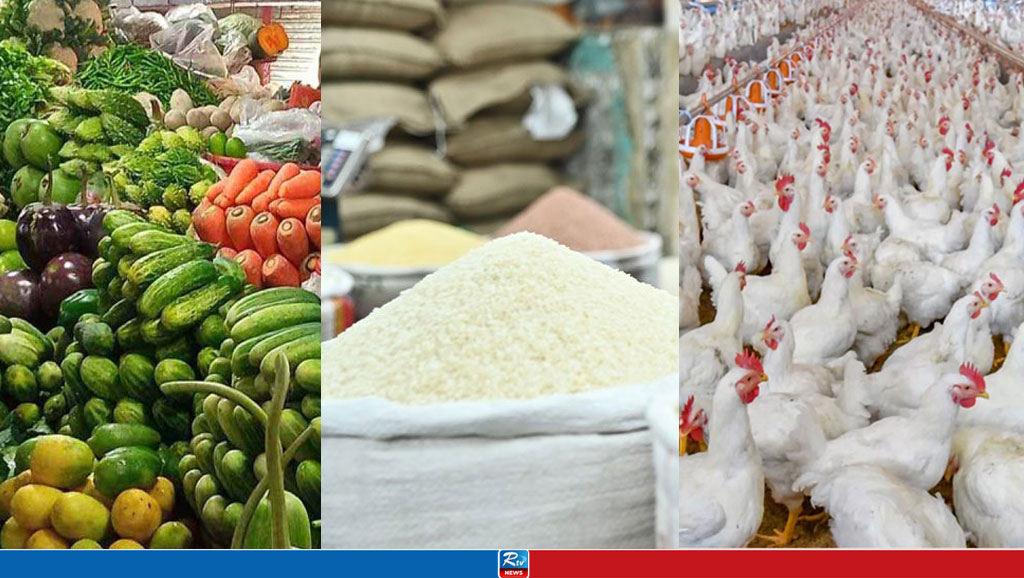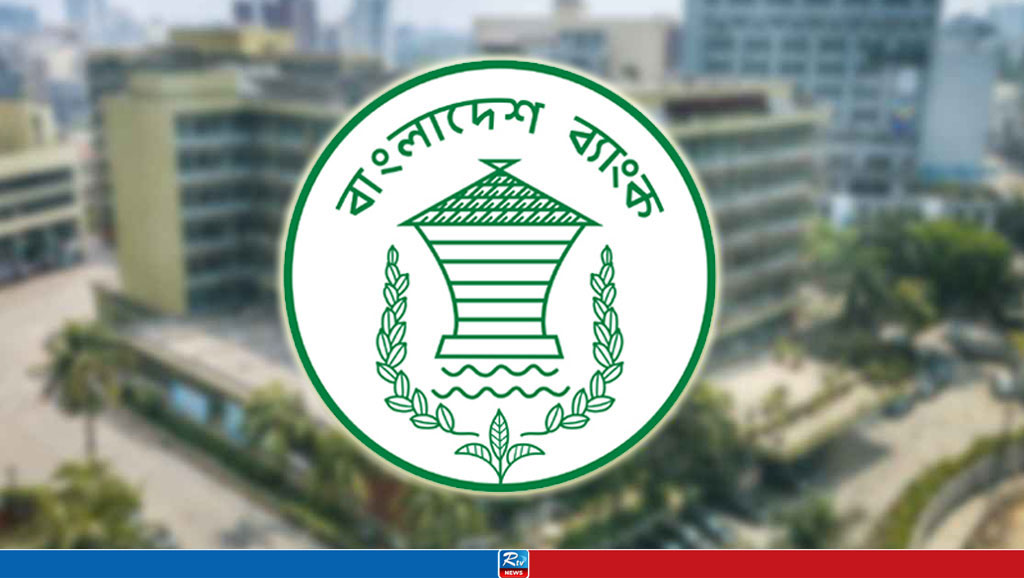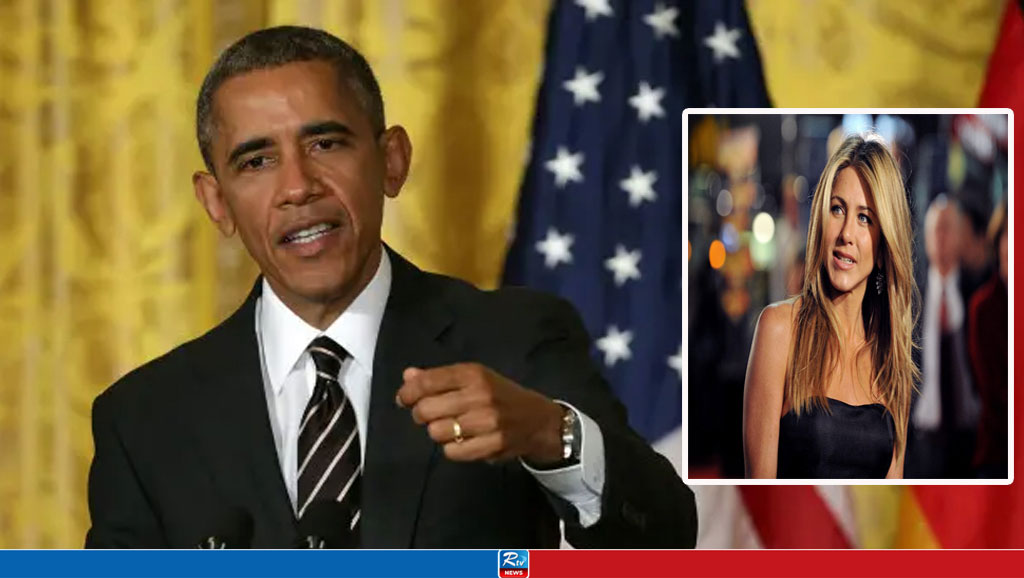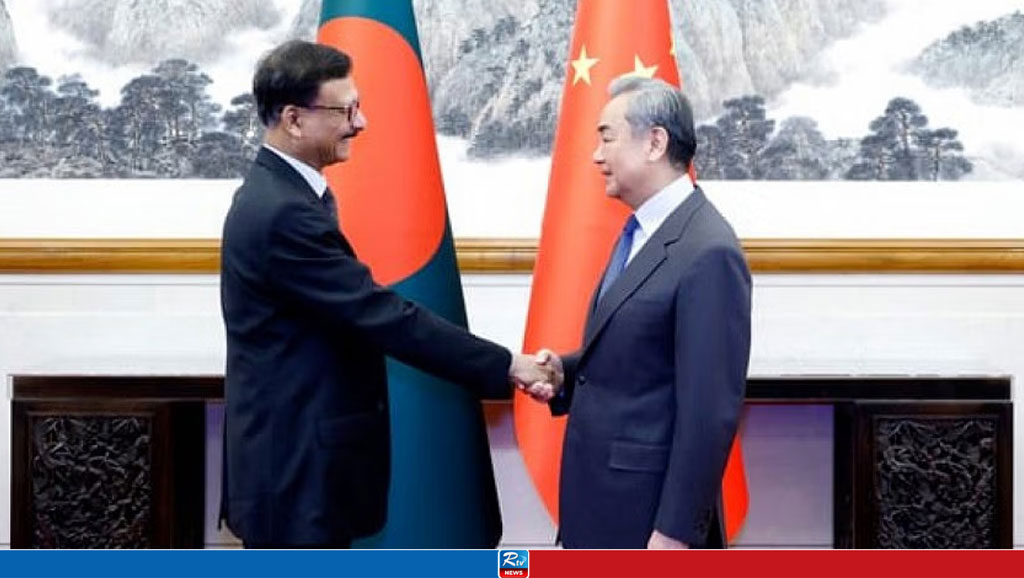DSE witnesses highest rise in seven years

The Dhaka Stock Exchange (DSE) witnessed the highest single-day rise on Sunday in seven years since the new index was introduced.
DSEX, the bench market index of the country’s premier bourse, rose 232.235 points to end the trading day at 4,382.064 points.
On the other hand, the Chittagong Stock Exchange (CSE) registered a rise by 577 points on the day.
The daily turnover at the DSE stood at Tk411.36 crore, up by 53.79 percent than Tk 267.49 crore in the previous trading day.
The new index began its journey on January 27, 2013. Since then, the DSE saw the highest rise by 155 points on May 10, 2015.
Source: UNB
AH
Comments
Dhaka Trade Fair Opens Today
The curtain rises on the 29th edition of the Dhaka International Trade Fair (DITF) today. The Chief Advisor of the interim government, Professor Dr. Muhammad Yunus, will inaugurate the fair.
On Wednesday (January 1), the Chief Advisor will officially open the event at 10:30 AM at the Bangladesh-China Friendship Exhibition Center in Purbachal, a joint initiative of the Ministry of Commerce and the Export Promotion Bureau (EPB). Present at the opening ceremony will also be Commerce Advisor Sheikh Bashir Uddin and EPB Vice-Chairman Md. Anwar Hossain.
According to EPB sources, this year's trade fair will feature 362 stalls and pavilions, including 11 exhibitors from seven countries, such as India, Pakistan, Turkey, Malaysia, Indonesia, Singapore, and Hong Kong. The fair will highlight themes like the July-August uprising with special sections named "July Square," "Thirty-Six Square," and the "Youth Pavilion." For the first time, e-ticketing has been introduced, and online booking options are available for various stall categories. Additionally, the fair will provide dedicated BRTC bus services and discounted Uber rides to facilitate visitor transport.
Seminars focused on promising sectors and products will be held during the fair. For international entrepreneurs and businesses, there will be a dedicated sourcing corner and specialized zones for electronics and furniture. Facilities such as a technology corner for younger visitors and a sitting corner for senior citizens have also been arranged.
Around 300 BRTC buses will operate from Kuril, Bhulta, Gazipur, and Narayanganj for the convenience of visitors. The fair will run daily from 10:00 AM to 9:00 PM. Entry fees are set at 50 BDT for adults and 25 BDT for children. The organizers are optimistic about higher visitor turnout compared to previous years.

Special Loans of Tk 12,500 Crore Granted to Three Banks
To cover deficits from the outgoing year, Bangladesh Bank has provided special loans totaling Tk 12,500 crore to three private-sector banks. These funds were used by the banks on Monday, the final day of the year, to address deficits in their current accounts. As a result, the current accounts of these three banks were shown in surplus.
The three banks that received special loans are Islami Bank, National Bank, and AB Bank.
Officials from Bangladesh Bank stated that the loaned funds will be reclaimed by the central bank today (Wednesday) to balance financial accounts. Additionally, outside of the special loans, AB Bank received Tk 200 crore in separate liquidity support.
Reasons Behind the Loan
According to sources, these three banks have faced severe liquidity crises over the last 15 years due to various irregularities. Of particular note, Islami Bank—after coming under the control of the Chattogram-based S. Alam Group—suffered major misuse of funds, with the group extracting Tk 73,000 crore through irregular loans, representing almost 50% of the bank’s total loan portfolio.
Similarly, National Bank has been exploited by its stakeholders, including Sikder Group, alongside entities like Beximco, Maisha Group, Bashundhara, FMC, Saif Port Holdings, Saif Powertec, NASA, Fu-Wang Foods, SS Steel, and Karnaphuli Group, all of whom extracted large sums under the guise of loans. Many of these loans are now non-performing. Among them, the loans taken by the late Aslamul Haque's Maisha Group—a former ruling party MP—have already defaulted.
Other notable defaulters include Bloom Success International, Broadway Real Estate, Nurjahan Group, Diking Smart Battery, Ehsan Group, Millennium Group, Opex Sinha Group, Mariam Construction, RSA Capital, Keya Cosmetics, Independent TV, and GMG Airlines.
AB Bank has also been struggling with liquidity issues for years due to irregularities. One of its key founding figures is former BNP foreign minister M. Morshed Khan, under whose family control the bank operated for years. The bank has also been involved in significant fraud and irregularities.
The Central Bank's Intervention
Due to irregularities, these banks have long failed to meet the required Cash Reserve Ratio (CRR) and Statutory Liquidity Ratio (SLR) set by the central bank. The treasury bills and bonds they held for SLR purposes had already been mortgaged to secure loans from the central bank, leaving them without further collateral to raise funds.
As a result, Bangladesh Bank granted these special loans to ensure that the banks could show surplus balances in their current accounts on the last day of the year.
Of the Tk 12,500 crore loan, Islami Bank received Tk 5,500 crore, National Bank received Tk 6,000 crore, and AB Bank received Tk 1,000 crore. These loans come with an interest rate of 11.5%. The borrowed funds, issued on Monday, are to be returned on Wednesday (January 1).
Additionally, apart from the Tk 1,000 crore special loan, AB Bank was granted an extra Tk 200 crore to meet its daily liquidity needs.

Highest Remittance in the Country's History Recorded in December
The country received the highest-ever remittance in its history, amounting to $2.64 billion (or $2.639 billion). In local currency terms (calculated at 120 BDT per dollar), this translates to approximately 31,668 crore BDT.
This is the largest amount of remittance recorded in a single month. Previously, the highest monthly remittance was $2.59 billion, received in July 2020 during the COVID-19 period. That record has now been surpassed in December 2024, the Victory Month of Bangladesh, according to data from the Bangladesh Bank.
Bangladesh Bank data reveals that nearly $2.64 billion in remittance was received throughout December 2024. This amount is $648 million higher than the same period last year. In December 2023, the country received $1.991 billion. Excluding July 2024, remittance inflow exceeded $2 billion in all other months of the year.
Data also shows that in the first half of the current fiscal year 2024-25 (July–December), expatriate Bangladeshis sent remittances totaling $13.777 billion. This marks an increase of $2.977 billion compared to the same period in the previous fiscal year when remittance inflows amounted to $10.8 billion.

Vegetable Prices Drop, While Rice and Chicken Prices Continue to Rise
Winter's peak season is bringing unexpected relief to vegetable markets. However, instability in rice and chicken prices has dampened that sense of relief.
A market survey on Friday (January 3) of popular spots like Mohakhali, Karwan Bazar, and Nakhalpara Samity Bazar revealed contrasting trends.
Rice Prices Surge
Over the last two weeks, rice prices have jumped by up to 10 BDT per kilogram, adding strain to household budgets. Retailers and wholesalers attribute the hike to millers, who blame higher paddy costs. However, many sellers believe the increase is unwarranted, citing manipulation by millers and weak regulatory oversight.
Miniket rice: Now 78–80 BDT/kg, up from 68–75 BDT/kg.
Nazirshail rice: Now 80–86 BDT/kg, compared to 70–78 BDT/kg.
BR-28 rice: Increased to 60–65 BDT/kg from 58–60 BDT/kg.
Coarse rice (Guti Swarna): Now 55–56 BDT/kg, up from 50–55 BDT/kg.
Imported Indian Miniket rice is priced slightly lower at 76–78 BDT/kg.
Shahajan Mia, a rice trader, accused millers of artificially inflating prices, stating, "They are exploiting the lack of monitoring to pressurize the government."
Chicken Prices Remain High
Despite the drop in egg prices—now at 130–135 BDT per dozen—chicken remains costly. Broiler chicken is priced at 190–200 BDT per kg, while Sonali chicken costs 330–350 BDT per kg.
Vegetable Markets Offer Relief
Vegetables have seen significant price reductions, with most items available for under 60 BDT per kilogram:
Radish and turnip: 15–20 BDT/kg
Flat beans: 20–40 BDT/kg
Carrots: 50–55 BDT/kg
Snake gourd: 35–40 BDT/kg
Bitter gourd: 30–50 BDT/kg
Eggplant: 40–50 BDT/kg
Tomatoes are priced at 50–70 BDT/kg, while yardlong beans range from 50–65 BDT/kg. Larger vegetables like cabbages and cauliflowers cost 15–20 BDT each, and bottle gourds are 40–50 BDT per piece.
New potatoes have also flooded markets, bringing their prices down to 40–45 BDT per kg, although older potatoes remain at 50 BDT per kg.
Onion and Garlic Trends
Local onions now cost 50–55 BDT per kg, a noticeable drop, while older onions are priced at 75–80 BDT per kg. However, garlic prices are slightly up, with domestic varieties at 230–235 BDT/kg and imported ones at 220–225 BDT/kg.
Fish and Meat Prices Steady
Beef prices remain high at 700–750 BDT/kg, and fish prices have shown no major fluctuations.
Consumers welcome the relief in vegetable prices but lament the financial burden caused by surging rice and chicken costs. For many, the benefits of winter's bounty are being offset by these persistent price hikes.

Gold Prices Surge to Two-Week High, Reasons Revealed
Gold prices have climbed to their highest levels in two weeks, with spot gold rising 1% on Thursday, January 2, to $2,649.73 per ounce, the highest since December 18. US gold futures also advanced by 0.8% to $2,663.20 per ounce, according to reports from Khaleej Times.
Market experts attribute this rally to heightened demand for gold as a safe-haven investment amid declining US Treasury bond prices. The Federal Reserve's dovish stance on interest rates and concerns surrounding new tariff policies under President Donald Trump's administration have further supported the upward momentum.
The falling value of US 10-year Treasury bonds has enhanced gold’s appeal to investors, as gold, unlike bonds, does not yield interest income.
Economic uncertainties and geopolitical tensions have also played a significant role in driving demand for the precious metal. In 2024, factors such as central bank gold purchases, reduced interest rates, and global tensions fueled a 27% annual surge in gold prices, reaching record highs.
Analysts predict that, after early-year profit-taking, gold prices will continue their upward trajectory, potentially reaching $3,000 per ounce by 2025.
Other precious metals have also experienced gains. Silver prices jumped 2.1% to $29.48 per ounce, while platinum and palladium rose 2.1% and 1.3%, trading at $922.85 and $922.40 per ounce, respectively.
The ongoing trend underscores the growing appeal of precious metals as reliable assets during times of financial and political uncertainty.

6 MDs of Banks Sent on Forced Leave
A total of six bank Managing Directors (MDs), including those from four banks under the control of the controversial S Alam Group, have been sent on forced leave.
According to a notification issued by the Bangladesh Bank on Sunday (January 5), the MDs were instructed to take leave.
The banks involved in the loan scam are: First Security Islami Bank, SIIBL, Union Bank, Global Islami Bank, EXIM Bank, and ICB Islami Bank.
Among them, the MD of First Security Islami Bank was sent on forced leave on Saturday.
It is understood that the decision to conduct a "forensic audit" on these private banks, which have fallen into liquidity crises due to loan fraud and various irregularities, was made by the task force formed for banking sector reforms. The audits will take place while the MDs are on leave. Since they were part of the previous management during these issues, their continued presence could potentially compromise the audit's impartiality.
Therefore, to avoid any controversy and ensure impartiality, they have been sent on leave.
It has also been reported that the forensic audit will review all transactions that took place within a specific period and investigate whether any data was deleted. Bangladesh Bank has agreed with this decision.
An official from the central bank stated that if the previous officials remain in place, there could be a possibility of manipulation during the audit, which is why both the Bangladesh Bank and the banks decided on this course of action.

ADB to Provide $1 Billion Annually for Bangladesh's Development
The Asian Development Bank (ADB) has pledged to provide Bangladesh with US$1 billion annually in concessional financing over the next five years to support the country's development initiatives.
The announcement was made by ADB Country Director Hoe Yun Jeong during a meeting with Syeda Rizwana Hasan, Adviser to the Ministry of Environment, Forest, and Climate Change, at the Forest Department on Sunday.
During the meeting, they discussed ADB's commitment to bolstering Bangladesh's efforts in climate resilience and environmental sustainability. Adviser Rizwana Hasan underscored the importance of prioritizing climate-focused and socially inclusive initiatives over traditional infrastructure projects.
Highlighting her government's ambitious plans to restore eight major rivers across the country's eight divisions, Rizwana urged ADB to focus on river-cleaning initiatives around Dhaka. She emphasized the need for actionable projects instead of just formulating plans and called for concessional loans to address critical environmental challenges, including:
Solid waste management
Sewage treatment
Salinity intrusion
Waterlogging
Human-elephant conflicts
In response, Hoe Yun Jeong assured Rizwana of ADB's enhanced financial support, including grants, to help achieve Bangladesh's environmental goals. He expressed strong interest in river cleaning projects and highlighted ADB's commitment to fostering community engagement and public consultations during project implementation.
The meeting was attended by the Environment Secretary, the Chief Conservator of Forests, and other representatives from ADB.


 Live Tv
Live Tv




